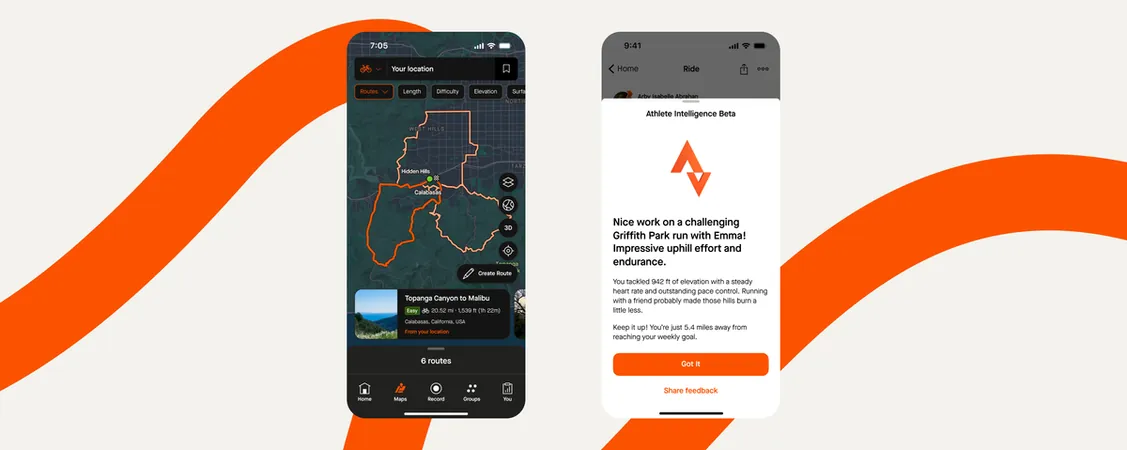
Strava's Controversial Change: Is Your Fitness Data at Risk?
2024-11-20
Author: Jia
Strava's Announcement
This week, Strava stirred up a storm among its users by announcing a significant restriction on third-party applications. The popular fitness-tracking platform revealed that these apps will no longer be allowed to share user data with anyone other than the individual who created it. Users quickly took to social media, expressing outrage and concern that Strava is attempting to eliminate valuable third-party apps that assist with coaching and analytics.
Strava's Response
In an attempt to quell the backlash, Strava issued a follow-up statement, reassuring users that these changes would only impact a minuscule percentage of customers—reportedly less than 0.1%. The company stated, “If you have granted a third-party app access to your activity data, they will no longer be able to display it within their interfaces to any user other than yourself.” Developers have been given a month to revise their applications to align with these updated policies.
Impact on Third-Party Apps
One affected app, Intervals.icu, confirmed that they were informed about their non-compliance with the new terms, indicating that their users' data would henceforth be restricted to personal access only.
Strava's Justification
Strava articulated the reasoning behind the changes, primarily focusing on privacy concerns. The company mentioned, “We want to thoughtfully address situations where users connect to a third-party app and are unaware that their data is being displayed to other users.” This, they claim, is a step towards a more secure and consistent framework for handling user data.
Support from Third-Party Apps
Reassuringly, VeloViewer, a prominent third-party app, took to BlueSky to announce their collaboration with Strava during this transitional period. “We have always had a really strong relationship with Strava, and we are currently working together to navigate these changes.”
Strava's Commitment to Innovation
Strava further emphasized that they are not attempting to eliminate third-party apps. Instead, they believe that their platform flourishes thanks to the creativity and innovation of external developers. They maintain that the majority of existing use cases—like user-focused coaching platforms and analytics tools—will remain unaffected.
AI and Data Use Restrictions
As part of this update, Strava also explicitly prohibited third parties from using data gleaned from their API for training artificial intelligence models. This move aims to prioritize user control over their data, allowing them the option to opt-out of any misuse. The platform clarified that previous terms had already limited data use for AI, but they felt precise restrictions were necessary due to the increasing interest in AI technologies.
Conclusion
The decision sends a strong message to developers and users alike: Strava is taking a firm stance on data privacy while navigating the complex relationship with third-party applications. But the question lingers—will this controversial move ultimately alienate users or is it a necessary step towards a more secure platform? As the situation unfolds, users and developers are left to wonder what the future holds for Strava and its ecosystem.






 Brasil (PT)
Brasil (PT)
 Canada (EN)
Canada (EN)
 Chile (ES)
Chile (ES)
 España (ES)
España (ES)
 France (FR)
France (FR)
 Hong Kong (EN)
Hong Kong (EN)
 Italia (IT)
Italia (IT)
 日本 (JA)
日本 (JA)
 Magyarország (HU)
Magyarország (HU)
 Norge (NO)
Norge (NO)
 Polska (PL)
Polska (PL)
 Schweiz (DE)
Schweiz (DE)
 Singapore (EN)
Singapore (EN)
 Sverige (SV)
Sverige (SV)
 Suomi (FI)
Suomi (FI)
 Türkiye (TR)
Türkiye (TR)